Mass fish deaths severely impact Aegean neighbors İzmir, Volos
Mass fish deaths along the Aegean coasts of Turkey and Greece have once again highlighted the impact of human activity on the environment. Gazete Duvar interviewed environmentalists from both countries to discuss the issue.
Cihan Başakçıoğlu and Kavel Alpaslan / Gazete Duvar
Mass fish deaths were brought to the spotlight in Turkey during last week with dead fish washing ashore in Aegean İzmir province’s Bayraklı district and have since spread along the city’s coastline. Since Aug. 20, the persistent fish deaths have caused a lingering bad odor in the coastal districts of the city.
While İzmir Metropolitan Municipality has been continuing its cleanup efforts with marine vessels, the Environment, Urbanization, and Climate Change Ministry has announced an investigation into the fish deaths in İzmir Gulf.
Mass fish deaths in ‘neighborhood’
While the situation regarding fish deaths in İzmir have remained unresolved, hundreds of thousands of dead fish have also washed ashore at the port in Volos, Greece, across the Aegean Sea.
As in İzmir, authorities in Volos have advised against swimming and fishing in the affected areas. Magnesia Deputy Governor Anna-Maria Papadimitriou stated that the dead fish were freshwater species that have been carried to the sea from the nearby rivers.
She described the incident as an “environmental disaster” and called for increased awareness and action.
Given the situation, environmentalist in both Greece and Turkey have begun to discuss the role of human factors in the pollution and fish deaths in the Aegean Sea. The simultaneous deaths of hundreds of thousands of fish in Volos and İzmir has highlighted the need to consider these cases together.
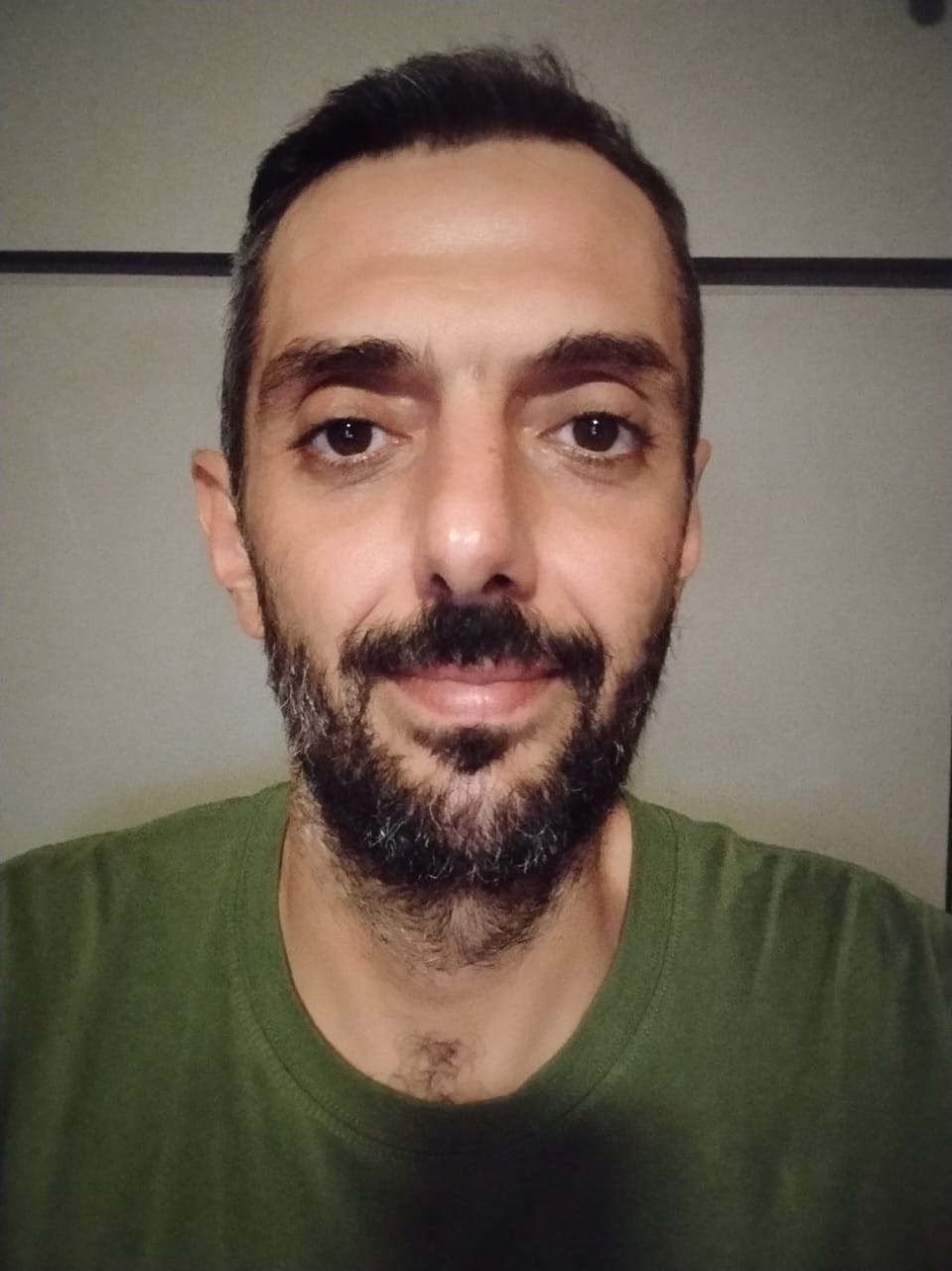
In this context, we spoke with Nikos Kanellis, a member of the Keep It In The Ground movement—a group of environmentalists from Greece, Turkey, and Cyprus—who is also a former city council member in Volos. Kanellis began by linking the fish deaths in Volos to the flood disaster that occurred last year.
Kanellis explained that about a year ago, the region experienced a major flood caused by the climate crisis. This resulted in the Karla Lake near Volos growing significantly.
He noted, “This situation stems from the lake being intentionally drained by the government 60 years ago for agricultural purposes, which was an environmental crime. Recently, as part of flood recovery efforts, the government and local authorities decided to reopen the drainage channel to the lake, similar to what was done 60 years ago. This led to a significant increase in the fish population in the lake. When water was redirected to Pagasetic Gulf, the fish were left with insufficient oxygen and died."
The dead fish were then carried to the gulf through the drainage channel, leading to what Kanellis described as a complete disaster involving hundreds of thousands of fish.
He emphasized that neither the municipality nor the government authorities followed what was really going on in the lake during this year-long process, adding that the fish deaths were not a “natural” occurrence.
“The first dead fish in Pagasetic Gulf started to appear about a month ago. Of course, no intervention was made until the number of dead fish reached a very large number. They accumulated inside the harbor of Volos, the whole sea surface was filled with dead fish,” he stated.
The Greek environmentalist stated that the authorities only intervened about a week ago by putting a barrier and closing the canal to prevent the dead fish from going into the sea.
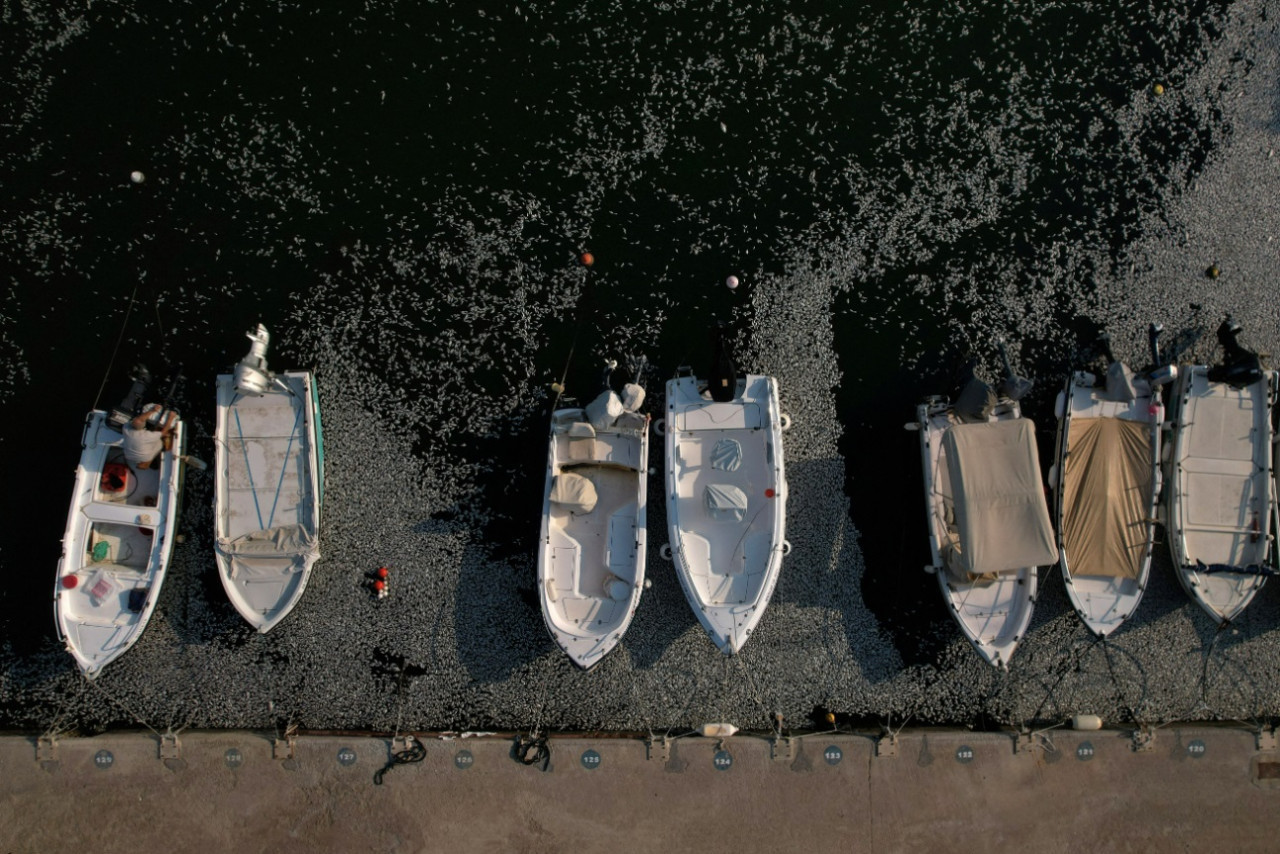
Emphasizing that the support was lacking in various areas, Kanellis stated that the Greek government did not allocate enough resources to the climate crisis that caused major floods. “Even after the floods, it did not provide enough employees, money and scientific support to examine the situation,” he added.
Kanellis stated that after the fish deaths, there was a process between the local administration, the municipality and the national government in which the parties pointed fingers at each other in order to avoid responsibility, adding that the issue was not a singular disaster for Greece.
The situation in Volos also opens the door to many future disasters. Kanellis stated that the question of what to do with the dead fish is as critical as the collection of dead fish.
“There is still a large amount of decaying fish in the sea, and the consequences are not yet fully understood. The real issue now is how to address the over 200 tons of dead fish, as it also poses a pollution problem. Simply burying the fish could lead to contamination of the soil and groundwater,” he emphasized.
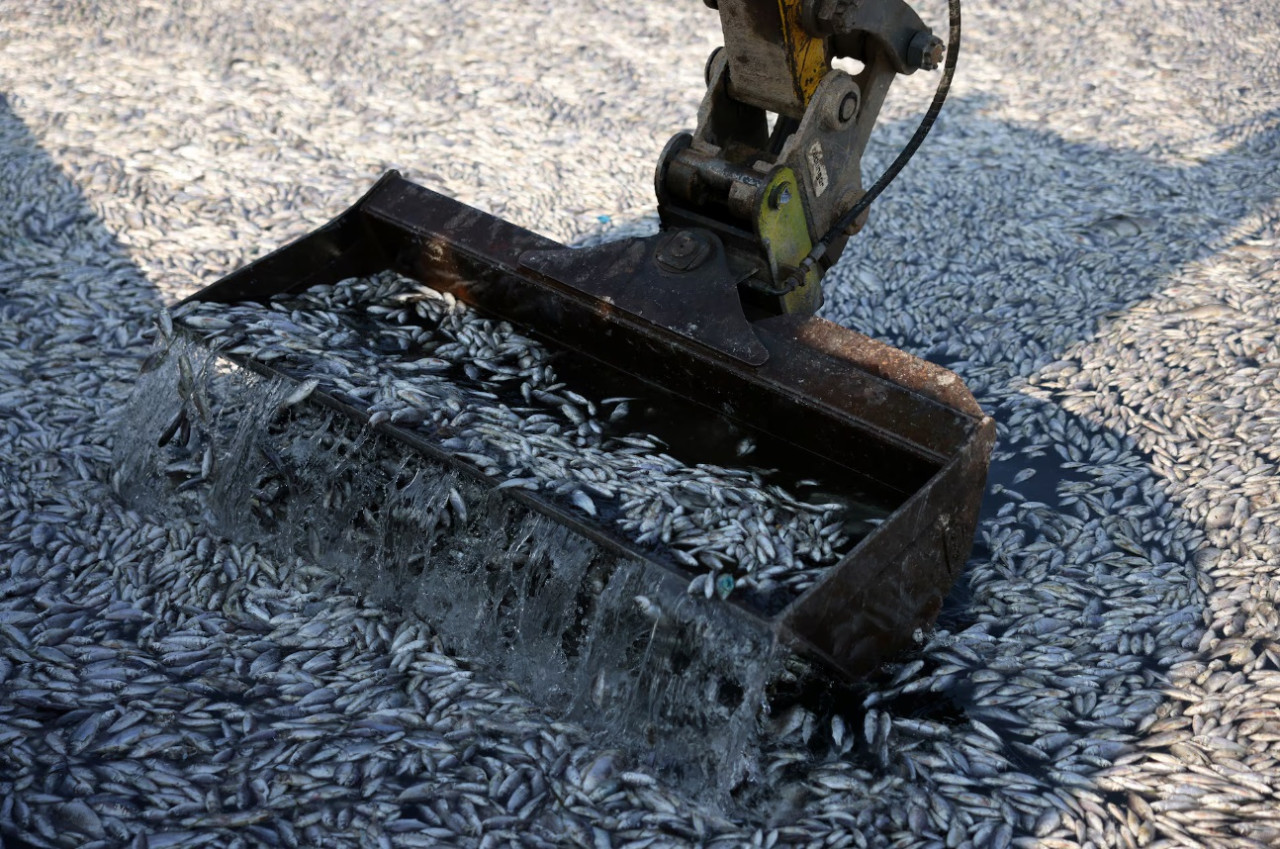
‘Fate of both coastlines is same’
Commenting on the situation in İzmir, İpek Sarıca, Co-spokesperson of the Aegean Environment and Culture Platform (EGEÇEP), drew attention to the human-oriented pollution in the seas and stated that the fate of the both coastlines around Aegean Sea has been similar for years.
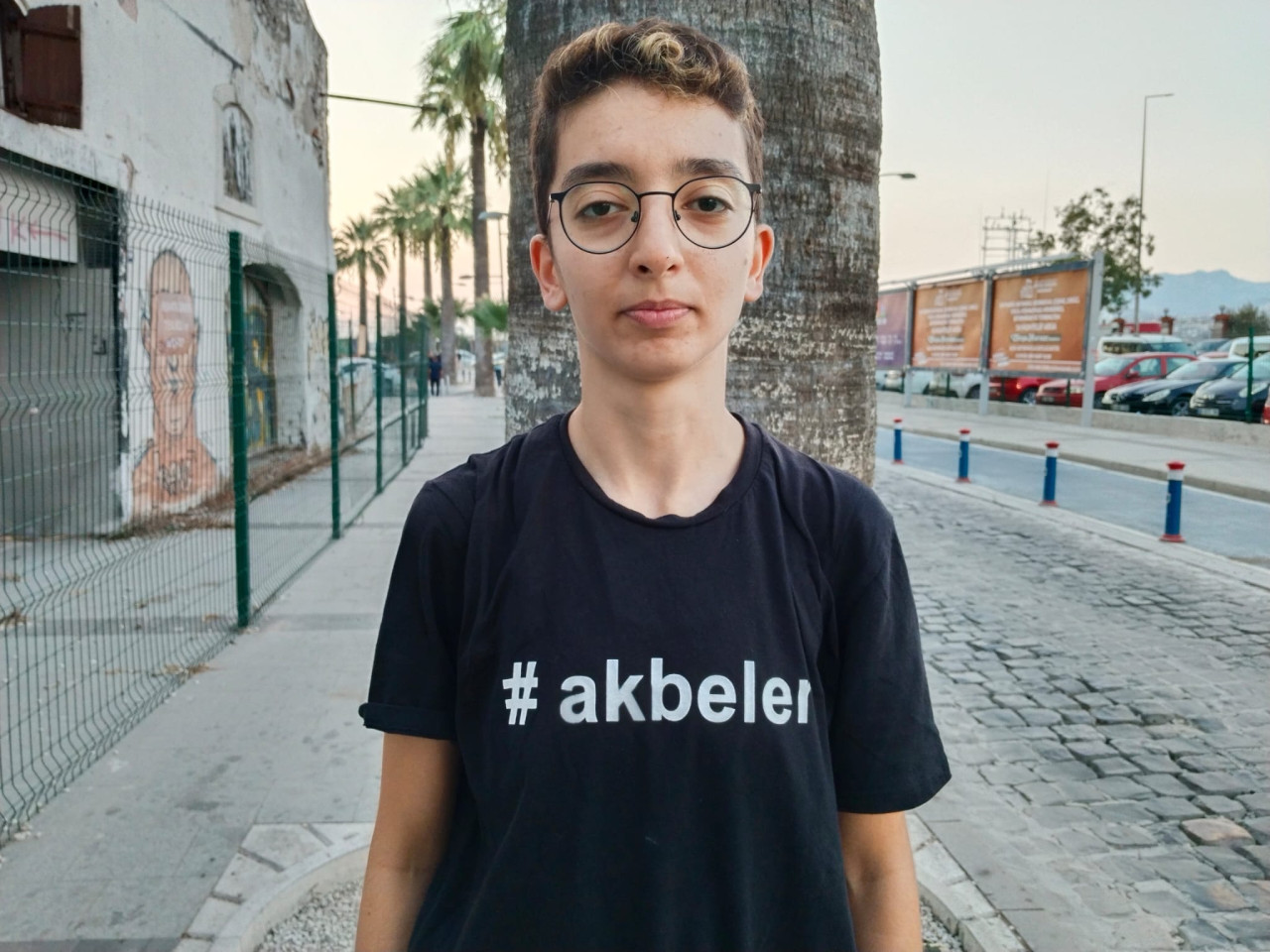
Sarıca said that they have not yet received any response from the applications they have made as a platform regarding the situation in İzmir and added, “If the reason for the pollution of the sea is the algae issue, which will be revealed as a result of the investigations, this means pollution. Facilities that cause ecocide should be identified and closed or strictly inspected. However, this is not being done either. There is no mechanism to take any measures. The fate of the two coasts has been the same for centuries.”
Referring to the increase in pollution in the Aegean Sea in the last 25 years, Sarıca noted, “In parallel with the increase in population, improvements should be made in infrastructure and treatment facilities. However, we are not doing this either. We pass over the issues with daily solutions.”
Sarıca highlighted that the administration's failure lies in allowing practices that could potentially pollute the environment. She stated, "However, our system does not have this. We allow some practices, and if we see that the environment is being polluted, we impose penalties. We need to move beyond the ‘polluter pays’ approach and address issues with caution from the start. Otherwise, we will continue to experience these disasters in even more severe forms, from the İzmir Gulf to the other shores of the Aegean Sea."
(English version by Can Bodrumlu)
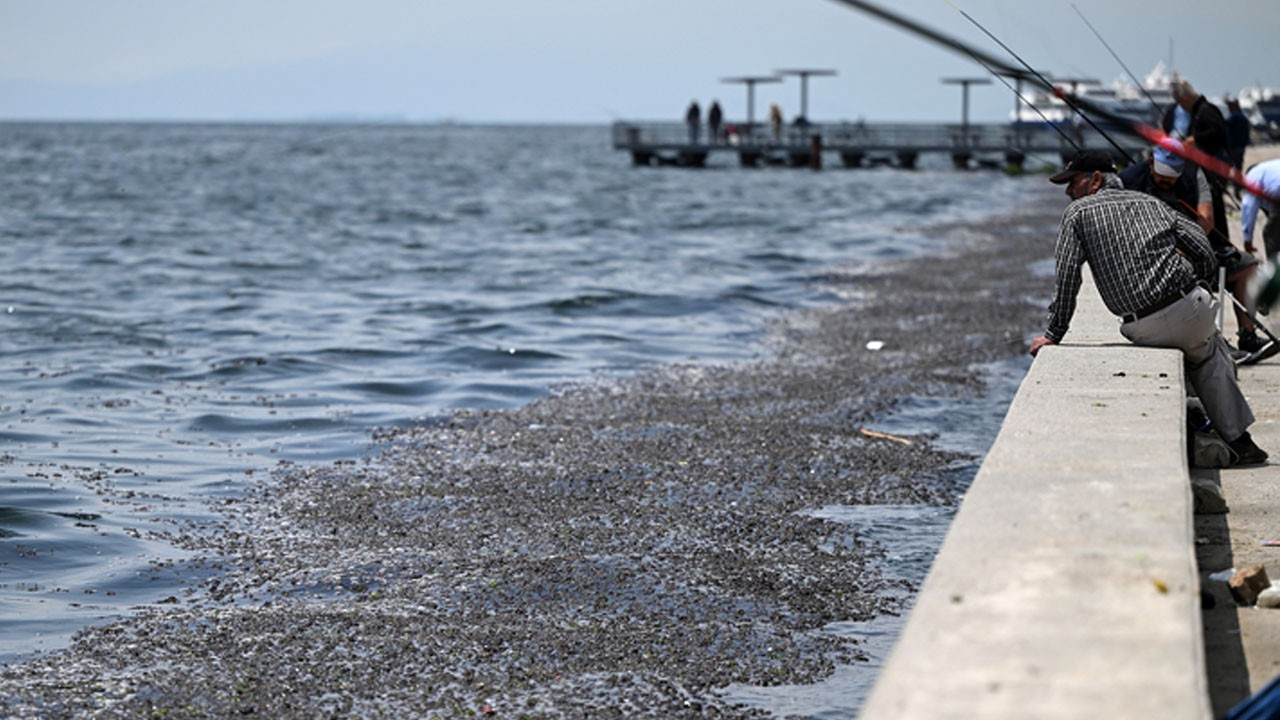

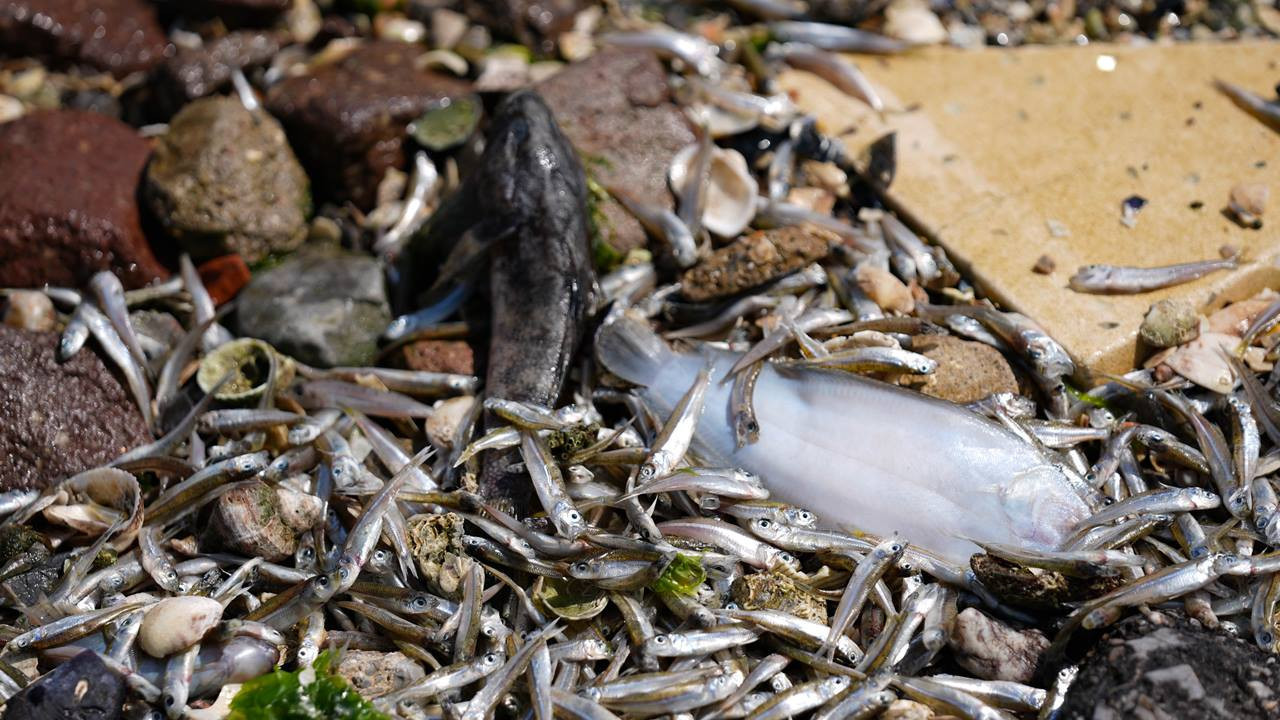 Hundreds of dead fish wash ashore in İzmir GulfEnvironment
Hundreds of dead fish wash ashore in İzmir GulfEnvironment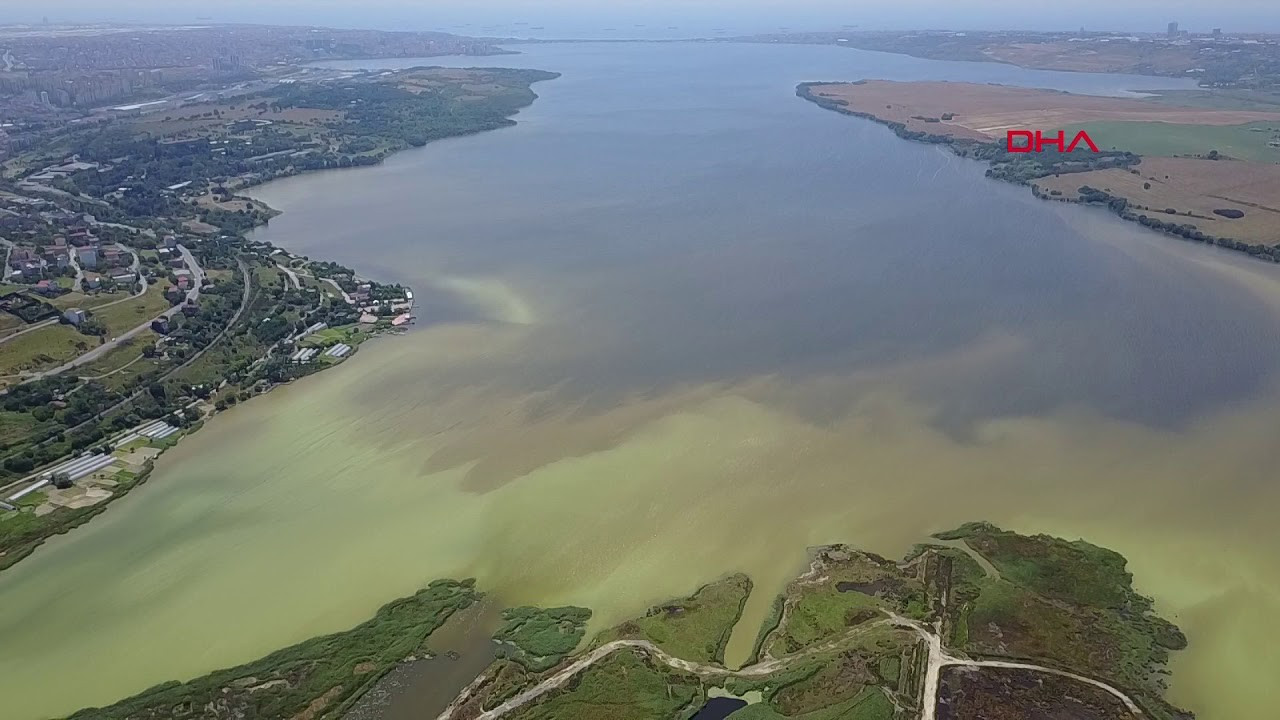 Hundreds of fish, crab wash ashore in Istanbul's Küçükçekmece LakeEnvironment
Hundreds of fish, crab wash ashore in Istanbul's Küçükçekmece LakeEnvironment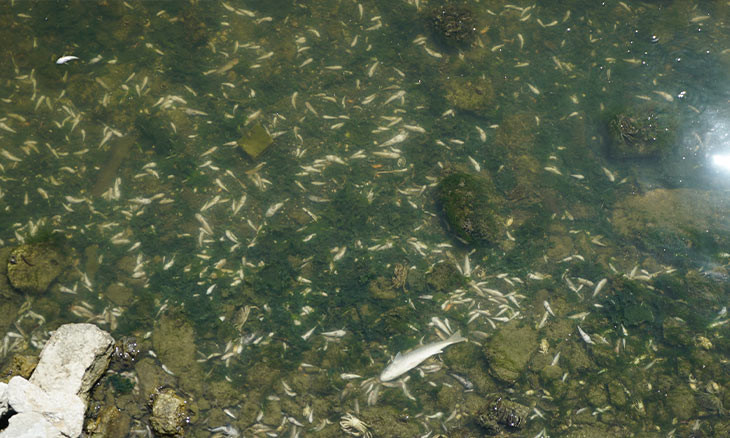 Thousands of dead fish repeatedly wash up on shore in suburban Istanbul lakeEnvironment
Thousands of dead fish repeatedly wash up on shore in suburban Istanbul lakeEnvironment